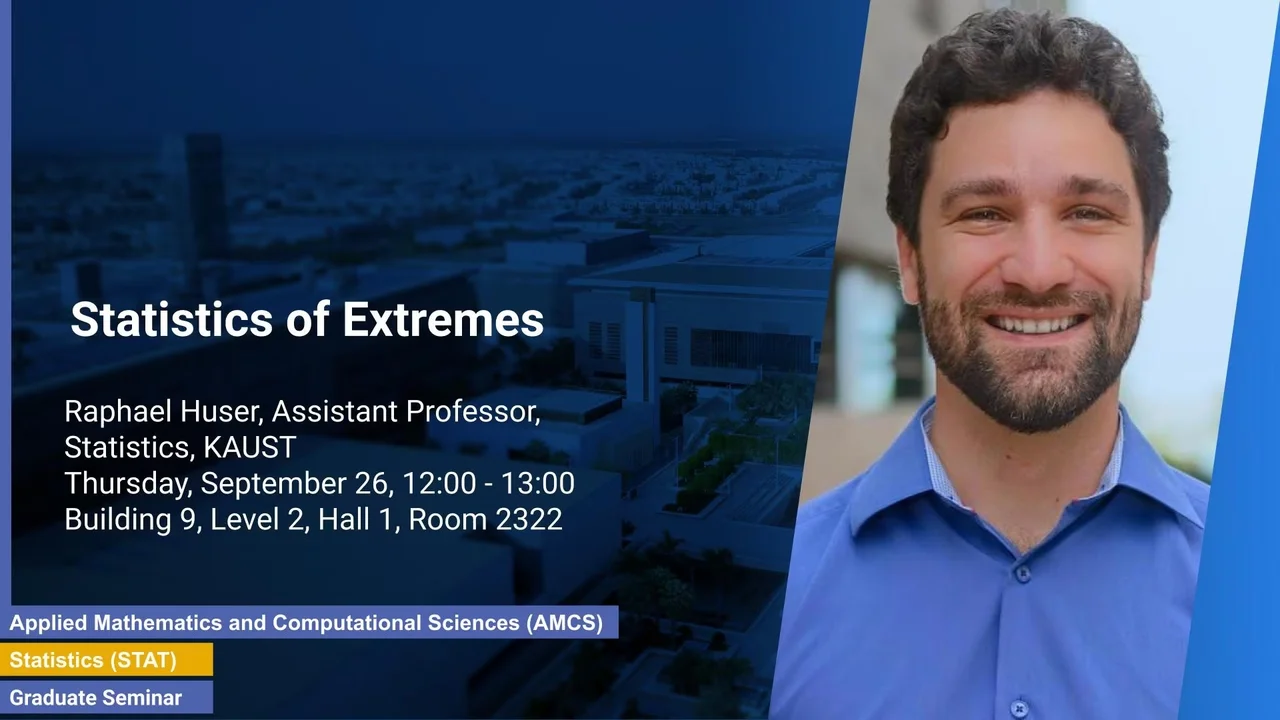
Statistics of Extremes
Extreme environmental events such as droughts, floods and heat-waves take place in space and time, and it is necessary to take this into account when evaluating their risks and estimating their probabilities. During this seminar, I will review some classical and more recent work on this topic, focusing on the modeling of univariate and spatial extremes. The ideas will be illustrated by applications to peak river flow data from the UK, and heavy rainfall close to Jeddah.
Overview
Abstract
Extreme environmental events such as droughts, floods, and heat-waves take place in space and time, and it is necessary to take this into account when evaluating their risks and estimating their probabilities. During this seminar, I will review some classical and more recent work on this topic, focusing on the modeling of univariate and spatial extremes. The ideas will be illustrated by applications to peak river flow data from the UK, and heavy rainfall close to Jeddah.
Brief Biography
Raphaël Huser is an Assistant Professor of Statistics in the KAUST Computer, Electrical, and Mathematical Sciences and Engineering (CEMSE) Division. Before joining KAUST—initially, as a Postdoctoral Fellow in January 2014 before transitioning to his current Assistant Professor role in March 2015—Huser received his Ph.D. degree in statistics from the École Polytechnique fédérale de Lausanne (EPFL) in 2013. He also holds a B.S. in Mathematics and an M.S. in Applied Mathematics from EPFL. Huser's research at KAUST focuses on the development of new models and inference methods for extreme events observed in space and time, with various applications in environmental sciences and finance. Huser has received several awards, the most recent one being the 2019 ENVR Early Investigator Award, from the Section on Statistics and the Environment (ENVR) of the American Statistical Association (ASA).
Lunch vouchers will be distributed around 11:45 AM.